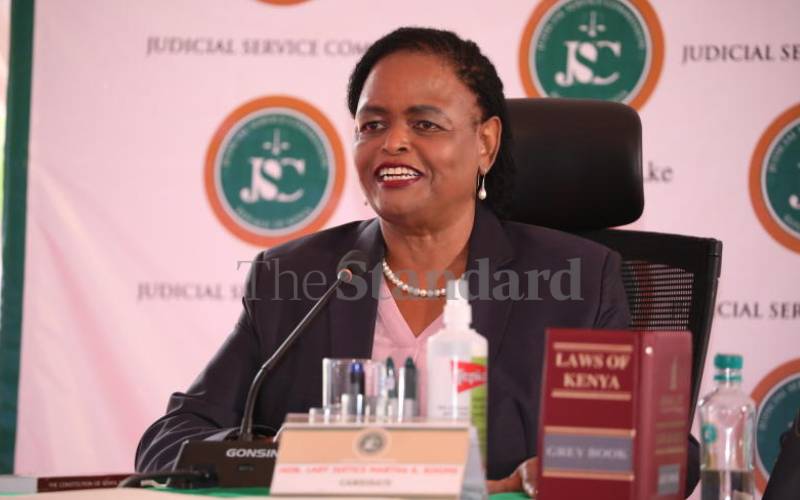×
The Standard e-Paper
Home To Bold Columnists

Lady Justice Martha Koome’s journey to becoming the first female Chief Justice has begun in earnest after President Uhuru Kenyatta submitted her name to Parliament for vetting.
After navigating through the rigorous interviews by the Judicial Service Commission, the CJ-designate has another hurdle, Parliament, which could break or make her dream as a woman of many firsts.